Space
Sign up for our newsletter
We summarize the week's scientific breakthroughs every Thursday.
-
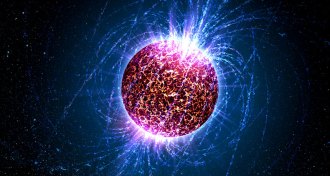 Physics
PhysicsNuclear pasta in neutron stars may be the strongest material in the universe
Simulations suggest that the theoretical substance known as nuclear pasta is 10 billion times as strong as steel.
-
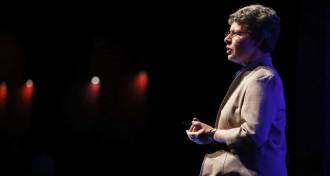 Astronomy
AstronomyJocelyn Bell Burnell wins big physics prize for 1967 pulsar discovery
Astrophysicist Jocelyn Bell Burnell speaks about winning the Breakthrough Prize, impostor syndrome and giving back.
-
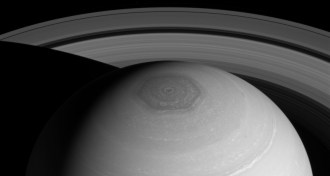 Planetary Science
Planetary ScienceSaturn has two hexagons, not one, swirling around its north pole
NASA’s Cassini spacecraft spied a vortex growing high over Saturn’s north pole, whose hexagonal shape mirrors a famous underlying cyclone.
-
 Astronomy
AstronomyReaders’ interest piqued by Parker Solar Probe, general relativity and more
Readers had questions about NASA's Parker Solar Probe, Einstein's general relativity theory and underwater cables used as earthquake sensors.
-
 Astronomy
AstronomyTo boldly go where no robot explorer has gone before
Editor in Chief Nancy Shute discusses the importance of robotic space missions for scientific research.
By Nancy Shute -
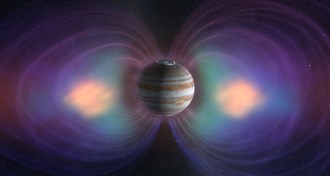 Planetary Science
Planetary ScienceJupiter’s magnetic field is surprisingly weird
New results from NASA’s Juno spacecraft reveal different magnetic behavior in the planet’s northern and southern hemispheres.
-
 Astronomy
Astronomy‘Accessory to War’ probes the uneasy alliance between space science and the military
Neil deGrasse Tyson and Avis Lang’s ‘Accessory to War’ grapples with the millennia-old partnership between space science and warfare.
-
 Astronomy
AstronomyNew images reveal how an ancient monster galaxy fueled furious star formation
Scientists were able to see the abundance of star-forming gas and dust in a giant galaxy from when the universe was less than 2 billion years old.
-
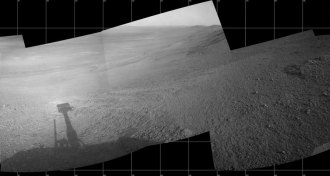 Planetary Science
Planetary ScienceThe massive Mars dust storm is waning. Now, will Opportunity wake?
With a global dust storm on Mars finally passing, NASA hopes that its Opportunity rover will soon phone home.
-
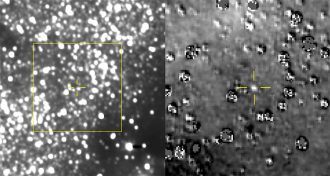 Planetary Science
Planetary ScienceNew Horizons has sent back the first images of Ultima Thule, its next target
NASA probe gets its first look at distant Kuiper Belt object
-
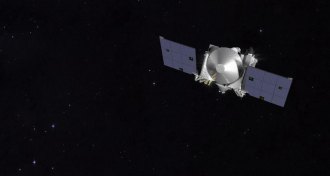 Planetary Science
Planetary ScienceOSIRIS-REx snaps first images of asteroid Bennu
OSIRIS-REx got its first glimpse of near-Earth asteroid Bennu. The probe will collect a sample from the asteroid and return it to Earth.
-
 Astronomy
AstronomyStrange gamma rays from the sun may help decipher its magnetic fields
The sun spits out more and weirder gamma rays than anyone expected, which could give a new view of the sun’s magnetic fields.